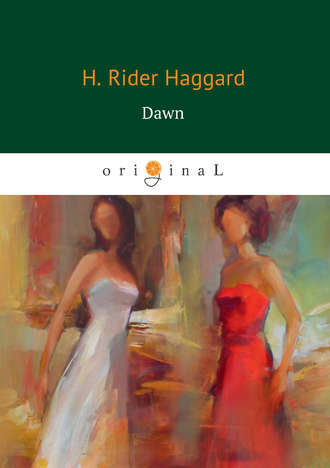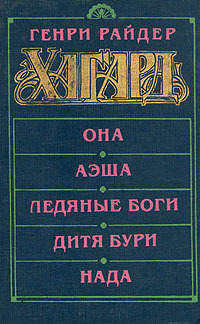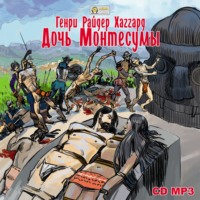
Полная версия
Dawn
"Never mind her,” said Philip, feeling as though a load had been taken from his breast, "you are sure nobody else has been?”
"No, sir, nobody, leastways he begged pardon, nobody except lawyer Bellamy and his clerk, who had been there all the afternoon writing, with a black bag, and had sent for Simmons to be witnessed.”
"You can go,” said Philip, in a quiet voice. He saw it all now, he had let the old man die after he had executed the fresh will disinheriting him. He had let him die; he had effectually and beyond redemption cut his own throat. Doubtless, too, Bellamy had taken the new will with him; there was no chance of his being able to destroy it.
By degrees, however, his fit of brooding gave way to one of sullen fury against his wife, himself, but most of all against his dead father. Drunk with excitement, rage, and baffled avarice, he seized and candle and staggered up to the room where the corpse had been laid, launching imprecations as he went at his dead father’s head. But when he came face to face with that dread Presence his passion died, and a cold sense of the awful quiet and omnipotence of death came upon him and chilled him into fear. In some indistinct way he realized how impotent is the chafing of the waters of Mortality against the iron- bound coasts of Death. To what purpose did he rail against that solemn quiet thing, that husk and mask of life which lay in unmoved mockery of his reviling?
His father was dead, and he, even he, had killed his father. He was his father’s murderer. And then a terror of the reckoning that must one day be struck between that dead man’s spirit and his own took possession of him, and a foreknowledge of the awful shadow under which he must henceforth live crept into his mind and froze the very marrow in his bones. He looked again at the face, and, to his excited imagination, it appeared to have assumed a sardonic smile. The curse of Cain fell upon him as he looked, and weighed him down; his hair rose, and the cold sweat poured from his forehead. At length he could bear it no longer, but, turning, fled out of the room and out of the house, far into the night.
When, haggard with mental and bodily exhaustion, he at length returned, it was after midnight. He found Dr. Caley waiting for him; he had just come from the sick-room and wore an anxious look upon his face.
"Your wife has been delivered of a fine girl,” he said; "but I am bound to tell you that her condition is far from satisfactory. The case is a most complicated and dangerous one.”
"A girl!” groaned Philip, mindful of the will. "Are you sure that it is a girl?”
"Of course I am sure,” answered the doctor, testily.
"And Hilda ill—I don’t understand.”
"Look here, my good fellow, you are upset; take a glass of brandy and go to bed. Your wife does not wish to see you now, but, if necessary, I will send for you. Now, do as I tell you, or you will be down next. Your nerves are seriously shaken.”
Philip did as he was bid, and, as soon as he had seen him off to his room, the doctor returned upstairs.
In the early morning he sent for two of his brother-practitioners, and they held a consultation, the upshot of which was that they had come to the conclusion nothing short of a miracle could save Hilda’s life—a conclusion that she herself had arrived at some hours before.
"Doctor,” she said, "I trust to you to let me know when the end is near. I wish my husband to be present when I die, but not before.”
"Hush, my child—never talk of dying yet. Please God, you have many years of life before you.”
She shook her golden head a little sadly.
"No, doctor, my sand has run out, and perhaps it as as well. Give me the child—why do you keep the child away from me? It is the messenger sent to call me to a happier world. Yes, she is an angel messenger. When I am gone, see that you call her ‘Angela,’ so that I may know by what name to greet her when the time comes.”
During the course of the morning, she expressed a strong desire to see Maria Lee, who was accordingly sent for.
It will be remembered that old Mr. Caresfoot had on the previous day, immediately after Hilda had left him, sat down and written to Maria Lee. In this note he told her the whole shameful truth, ending it with a few words of bitter humiliation and self-reproach that such a thing should have befallen her at the hands of one bearing his name. Over the agony of shame and grief thus let loose upon this unfortunate girl we will draw a veil. It is fortunate for the endurance of human reason that life does not hold many such hours as that through which she passed after the receipt of this letter. As was but natural, notwithstanding old Mr. Caresfoot’s brief vindication of Hilda’s conduct in his letter, Maria was filled with indignation at what to herself she called her treachery and deceit.
While she was yet full of these thoughts, a messenger came galloping over from Bratham Abbey, bringing a note from Dr. Caley that told her of her old friend’s sudden death, and of Hilda’s dangerous condition, and her desire to see her. The receipt of this news plunged her into a fresh access of grief, for she had grown fond of the old man; nor had the warm affection for Hilda that had found a place in her gentle heart been altogether wrenched away; and, now that she heard that her rival was face to face with that King of Terrors before whom all earthly love, hate, hope, and ambition must fall down and cease their troubling, it revived in all its force; nor did any thought of her own wrongs come to chill it.
Within half an hour she was at the door of the Abbey House, where the doctor met her, and, in answer to her eager question, told her that, humanly speaking, it was impossible her friend could live through another twenty-four hours, adding an injunction that she must not stay with her long.
She entered the sick-room with a heavy heart, and there from Hilda’s dying lips she heard the story of her marriage and of Philip’s perfidy. Their reconciliation was as complete as her friend’s failing voice and strength would allow. At length she tore herself away, and, turning at the door, took her last look at Hilda, who had raised herself upon her elbow, and was gazing at her retreating form with an earnestness that was very touching. The eyes, Maria felt, were taking their fill of what they looked upon for the last time in this world. Catching her tearful gaze, the dying woman smiled, and, lifting her hand, pointed upwards. Thus they parted.
But Maria could control herself no longer: her own blasted prospects, the loss of the man she loved, and the affecting scene through which she had just passed, all helped to break her down. Running downstairs into the dining-room, she threw herself on a sofa, and gave full passage to her grief. Presently she became aware that she was not alone. Philip stood before her, or, rather, the wreck of him whom she knew as Philip. Indeed, it was hard to recognize in this scared man, with dishevelled hair, white and trembling lips, and eyes ringed round with black, the bold, handsome youth whom she had loved. The sight of him stayed her sorrow, and a sense of her bitter injuries rushed in upon her.
"What do you want with me?” she asked.
"Want! I want forgiveness. I am crushed, Maria, crushed—quite crushed,” and he put his hands to his face and sobbed.
She answered him with the quiet dignity that good women can command in moments of emergency—dignity of a very different stamp from Hilda’s haughty pride, but perhaps as impressive in its way.
"You ask forgiveness of me, and say that you are crushed. Has it occurred to you that, without fault of my own, except the fault of trusting you as entirely as I loved you, I too am crushed? Do you know that you have wantonly, or to gain selfish ends, broken my heart, blighted my name, and driven me from my home, for I can live here no more? Do you understand that you have done me one of the greatest injuries one person can do to another? I say, do you know all this, Philip Caresfoot, and, knowing it, do you still ask me to forgive you? Do you think it possible that I can forgive?”
He had never heard her speak like this before, and did not remember that intense feeling is the mother of eloquence. He gazed at her for a moment in astonishment; then he dropped his face into his hands again and groaned, making no other answer. After waiting awhile, she went on—
"I am an insignificant creature, I know, and perhaps the mite of my happiness or misery makes little difference in the scale of things; but to me the gift of all my love was everything. I gave it to you, Philip—gave it without a doubt or murmur, gave it with both hands. I can never have it back to give again! How you have treated it you best know.” Here she broke down a little, and then continued: "It may seem curious, but though my love has been so mistakenly given; though you to whom it was given have dealt so ill with it; yet I am anxious that on my side there should be no bitter memory, that, in looking back at all this in after years, you should never be able to dwell upon any harsh or unkind word of mine. It is on that account, and also because I feel that it is not for me to judge you, and that you have already much to bear, that I do as you ask me, and say, ‘Philip, from my heart I forgive you, as I trust that the Almighty may forgive me.’”
He flung himself upon his knees before her, and tried to take her hand. "You do not know how you have humbled me,” he groaned.
She gazed at him with pity.
"I am sorry,” she said; "I did not wish to humble you. I have one word more to say, and then I must go. I have just bid my last earthly farewell to —your wife. My farewell to you must be as complete as that, as complete as though the grave had already swallowed one of us. We have done with each other for ever. I do not think that I shall come back here. In my waking moments your name shall never willingly pass my lips again. I will say it for the last time now. Philip, Philip, Philip, whom I chose to love out of all the world, I pray God that He will take me, or deaden the edge of what I suffer, and that He may never let my feet cross your path or my eyes fall upon your face again.”
In another second she had passed out of the room and out of his life.
That night, or rather just before dawn on the following morning, Hilda, knowing that her end was very near, sent for her husband.
"Go quickly, doctor,” she said. "I shall die at dawn.”
The doctor found him seated in the same spot where Maria Lee had left him.
"What, more misery!” he said, when he had told his errand. "I cannot bear it. There is a curse upon me—death and wickedness, misery and death!”
"You must come if you wish to see your wife alive.”
"I will come;” and he rose and followed him.
A sad sight awaited him. The moment of the grey dawn was drawing near, and, by his wife’s request, a window had been unshuttered, that her dimmed eyes might once more look upon the light. On the great bed in the centre of the room lay Hilda, whose life was now quickly draining from her, and by her side was placed the sleeping infant. She was raised and supported on either side by pillows, and her unbound golden hair fell around her shoulders, enclosing her face as in a frame. Her pallid countenance seemed touched with an awful beauty that had not belonged to it in life, whilst in her eyes was that dread and prescient gaze which sometimes come to those who are about to solve death’s mystery.
By the side of the bed knelt Mr. Fraser, the clergyman of the parish, repeating in an earnest tone the prayers for the dying, whilst the sad-faced attendants moved with muffled tread backwards and forwards from the ring of light around the bed into the dark shadows that lay beyond.
When Philip came, the clergyman ceased praying, and drew back into the further part of the room, as did Pigott and the nurse, the former taking the baby with her.
Hilda motioned to him to come close to her. He came, and bent over and kissed her, and she, with an effort, threw one ivory arm around his neck, and smiled sweetly. After about a minute, during which she was apparently collecting her thoughts, she spoke in a low voice, and in her native tongue.
"I have not sent for you before, Philip, for two reasons—first, because I wished to spare you pain; and next, in order that I might have time to rid my mind of angry thoughts against you. They are all gone now— gone with every other earthly interest; but I was angry with you, Philip. And now listen to me—for I have not much time—and do not forget my words in future years, when the story of my life will seem but as a shadow that once fell upon your path. Change your ways, Philip dear, abandon deceit, atone for the past; if you can, make your peace with Maria Lee, and marry her—ah! it is a pity that you did not do that at first, and leave me to go my ways—and, above all, humble your heart before the Power that I am about to face. I love you, dear, and, notwithstanding all, I am thankful to have been your wife. Please God, we shall meet again.”
She paused awhile, and then spoke in English. To the astonishment of all, her voice was strong and clear, and she uttered her words with an energy that, under the circumstances, seemed almost awful.
"Tell her to bring the child.”
There was no need for Philip to repeat what she said, for Pigott heard her, and at once came forward with the baby, which she laid beside her.
The dying woman placed her hand upon its tiny head, and, turning her eyes upwards with the rapt expression of one who sees a vision, said—
"May the power of God be about you to protect you, my motherless babe, may angels guard you, and make you as they are; and may the heavy curse and everlasting doom of the Almighty fall upon those who would bring evil upon you.”
She paused, and then addressed her husband.
"Philip, you have heard my words; in your charge I leave the child, see that you never betray my trust.”
Then, turning to Pigott, she said, in a fainter voice—
"Thank you for your kindness to me. You have a good face; if you can, stop with my child, and give her your love and care. And now, may God have mercy on my soul!”
Then came a minute’s silence, broken only by the stifled sobs of those who stood around, till a ray of light from the rising sun struggled through the grey mist of the morning, and, touching the heads of mother and child, illumined them as with a glory. It passed as quickly as it came, drawing away with it the mother’s life. Suddenly, as it faded, she spread out her arms, sighed, and smiled. When the doctor reached the bed, her story was told: she had fallen asleep.
Death had been very gentle with her.
Chapter XIII
Go, my reader, if the day is dull, and you feel inclined to moralize —for whatever may be said to the contrary, there are less useful occupations—and look at your village churchyard. What do you see before you? A plot of enclosed ground backed by a grey old church, a number of tombstones more or less decrepit, and a great quantity of little oblong mounds covered with rank grass. If you have any imagination, any power of thought, you will see more than that. First, with the instinctive selfishness of human nature, you will recognize your own future habitation; perhaps your eye will mark the identical spot where the body you love must lie through all seasons and weathers, through the slow centuries that will flit so fast for you, till the crash of doom. It is good that you should think of that, although it makes you shudder. The English churchyard takes the place of the Egyptian mummy at the feast, or the slave in the Roman conqueror’s car—it mocks your vigour, and whispers of the end of beauty and strength.
Probably you need some such reminder. But if, giving to the inevitable the sigh that is its due, you pursue the vein of thought, it may further occur to you that the plot before you is in a sense a summary of the aspirations of humanity. It marks the realization of human hopes, it is the crown of human ambitions, the grave of human failures. Here, too, is the end of the man, and here the birthplace of the angel or the demon. It is his sure inheritance, one that he never solicits and never squanders; and, last, it is the only certain resting-place of sleepless, tired mortality.
Here it was that they brought Hilda, and the old squire, and laid them side by side against the coffin of yeoman Caresfoot, whose fancy it had been to be buried in stone, and then, piling primroses and blackthorn blooms upon their graves, left them to their chilly sleep. Farewell to them, they have passed to where as yet we may not follow. Violent old man and proud and lovely woman, rest in peace, if peace be the portion of you both!
To return to the living. The news of the sudden decease of old Mr. Caresfoot; of the discovery of Philip’s secret marriage and the death of his wife; of the terms of the old man’s will, under which, Hilda being dead, and having only left a daughter behind her, George inherited all the unentailed portion of the property, with the curious provision that he was never to leave it back to Philip or his children; of the sudden departure of Miss Lee, and of many other things, that were some of them true and some of them false, following as they did upon the heels of the great dinner-party, and the announcement made thereat, threw the country-side into a state of indescribable ferment. When this settled down, it left a strong and permanent residuum of public indignation and contempt directed against Philip, the more cordially, perhaps, because he was no longer a rich man. People very rarely express contempt or indignation against a rich man who happens to be their neighbour in the country, whatever he may have done. They keep their virtue for those who are impoverished, or for their unfortunate relations. But for Philip it was felt that there was no excuse and no forgiveness; he had lost both his character and his money, and must therefore be cut, and from that day forward he was cut accordingly.
As for Philip himself, he was fortunately, as yet, ignorant of the kind intentions of his friends and neighbours, who had been so fond of him a week ago. He had enough upon his shoulders without that—for he had spoken no lie when he told Maria Lee that he was crushed by the dreadful and repeated blows that had fallen upon him, blows that had robbed him of everything that made life worth living, and given him in return nothing but an infant who could not inherit, and who was therefore only an incumbrance.
Who is it that says, "After all, let a bad man take what pains he may to push it down, a human soul is an awful, ghostly, unique possession for a bad man to have?” During the time that had elapsed between the death and burial of his father and wife, Philip had become thoroughly acquainted with the truth of this remark.
Do what he would, he could never for a single hour shake himself free from the recollection of his father’s death; whenever he shut his eyes, his uneasy mind continually conjured up the whole scene with uncanny distinctness; the gloomy room, the contorted face of the dying man, the red flicker of the firelight on the wall—all these things were burnt deep into the tablets of his memory. More and more did he recognize the fact that, even should he live long enough to bury the events of that hour beneath the debris of many years, the lapse of time would be insufficient to bring forgetfulness, and the recognition brought with it moral helplessness. He had, too, sufficient religious feeling to make him uneasy as to his future fate, and possessed a certain amount of imagination, which was at this time all directed towards that awful day when he and his dead father must settle their final accounts. Already, in the quiet nights, he would wake with a start, thinking that the inevitable time had come. Superstitious fears also would seize him with their clammy fingers, and he would shake and tremble at the fancied step of ghostly feet, and his blood would curdle in his veins as his mind hearkened to voices that were for ever still.
And, worst of all, what had been done, and could never be undone, had been done in vain. These deadly torments must be endured, whilst the object for which they had been incurred had utterly escaped him. He had sold himself to the powers of evil for a price, and that price had not been paid. But the bond was good for all that.
And so he would brood, hour after hour, till he felt himself drawing near to madness. Sometimes by a strong effort he would succeed in tearing his mind away from the subject, but then its place was instantly filled by a proud form with reproachful eyes, and he would feel that there, too, death had put it out of his power to make atonement. Of those whom he had wronged Maria Lee alone survived, and she had left him in sorrow, more bitter than any anger. Truly, Philip Caresfoot was in melancholy case. Somewhere he had read that the wages of sin is death, but surely what he felt surpassed the bitterness of death. His evil-doing had not prospered with him. The snare he had set for his father had fallen back upon himself, and he was a crushed and ruined man.
It affords a curious insight into his character to reflect that all these piled-up calamities, all this wreck and sudden death, did not bring him penitent on his knees before the Maker he had outraged. The crimes he had committed, especially if unsuccessful, or the sorrows that had fallen upon him, would have sufficed to reduce nine-tenths of ordinary men to a condition of humble supplication. For, generally speaking, irreligion, or rather forgetfulness of God, is a plant of no deep growth in the human heart, since its roots are turned by the rock of that innate knowledge of a higher Power that forms the foundation of every soul, and on which we are glad enough to set our feet when the storms of trouble and emergency threaten to destroy us. But with Philip this was not so. He never thought of repentance. His was not the nature to fall down and say, "Lord, I have sinned, take Thou my burden from me.” Indeed, he was not so much sorry for the past as fearful for the future. It was not grief for wrong-doing that wrung his heart and broke his spirit, but rather his natural sorrow at losing the only creature he had ever deeply loved, chagrin at the shame of his position and the failure of his hopes, and the icy fingers of superstitious fears.
The crisis had come and passed: he had sinned against his Father in heaven and his father on earth, and he did not sorrow for his sin; his wife had left him, murmuring with her dying lips exhortations to repentance, and he did not soften; shame and loss had fallen upon him, and he did not turn to God. But his pride was broken, all that remained to him of strength was his wickedness; the flood that had swept over him had purged away not the evil but the good, from the evil it only took its courage. Henceforth, if he sins at all, his will be no bold and hazardous villany which, whilst it excites horror, can almost compel respect, but rather the low and sordid crime, the safe and treacherous iniquity.
Ajax no longer defies the lightning—he mutters curses on it beneath his breath.
On the evening of the double funeral—which Philip did not feel equal to attending, and at which George, in a most egregious hatband and with many sobs and tears, officiated as chief mourner—Mr. Fraser thought it would be a kind act on his part to go and offer such consolation to the bereaved man as lay within his power, if indeed he would accept it. Somewhat contrary to his expectation, he was, on arrival at the Abbey House, asked in without delay.
"I am glad to see a human face,” said Philip to the clergyman, as he entered the room; "this loneliness is intolerable. I am as much alone as though I lay stark in the churchyard like my poor wife.”
Mr. Fraser did not answer him immediately, so taken up was he in noticing the wonderful changes a week had wrought in his appearance. Not only did his countenance bear traces of the illness and exhaustion that might not unnaturally be expected in such a case of bereavement, but it faithfully reflected the change that had taken place in his mental attitude. His eyes had lost the frank boldness that had made them very pleasing to some people, they looked scared; the mouth too was rendered conspicuous by the absence of the firm lines that once gave it character; indeed the man’s whole appearance was pitiful and almost abject.









